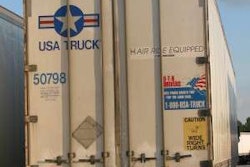Q: What is preemption? We use owner-operators, and I recently learned that this doctrine has been used to thwart state enforcement actions in California to reclassify owner-operators as employees.
A: I received the same notice from a political action committee that is tracking the various attacks on the owner-operator model by union-backed politicians. On the heels of the Los Angeles and Long Beach port disputes in which the Ninth Circuit ruled owner-operators could not be barred summarily from entering the ports, California Attorney General Jerry Brown sued two small draymen, alleging they violated state overtime and unemployment law by retaining owner-operators as independent contractors.
In a well-crafted brief in support of a motion for summary judgment, counsel for Pac Anchor Transportation argued that federal law preempted the State of California from enforcing these particular employment laws on interstate trucking under the so-called “doctrine of preemption.” This doctrine, which is essential to federalism, permits Congress to preempt or trump the application of state laws, regulation and enforcement in particular constitutionally delegated areas, including interstate commerce, under the so-called Commerce Clause of the Constitution.
As part of deregulation, Congress in 1994 sought to preempt state trucking regulations, borrowing language from the Airline Deregulation Act of 1978 that provides:
“[A] state … may not enact or enforce a law … related to price, route or service of any motor carrier … with respect to the transportation of
property.” See 49 U.S.C. 14501(c)(2).
Since its passing, this statute has been enforced to invalidate a variety of restrictive state laws, but to my knowledge it has not been used heretofore to trump state employment law. In Pac Anchor, its counsel argued that California employment law related to owner-operators is preempted implicitly by Congress’ unmistakable purpose to create a completely level playing field and to protect interstate carriers from state regulation by “leav[ing] [carriers] largely to themselves and not at all to the state.”
Seizing upon the legislative history of Section 14501(c)(2), Pac Anchor’s counsel noted that Congress singled out for criticism a previous California statute that granted an intrastate exemption to intermodal air and motor carriers, but denied the exemption “to those using a large portion of owner-operators instead of company employees.” Accordingly, Pac Anchor argued the State should be precluded from using state employment law to restrict the ability of carriers to use the independent contractor model.
Superior Court Judge Elizabeth White has held that the attorney general’s case, which was based on the allegations that defendant had classified drivers improperly as independent contractors rather than employees, would have a significant effect on motor carrier prices, routes and services, and therefore was preempted by statute.
This is a great initial decision for proponents of owner-operators as independent contractors. It affords an important legal and factual basis for distinguishing the owner-operator model from the use – and in many cases abuse – of the independent contractor classification in other industries.
– Henry Seaton is a transportation lawyer who represents carriers.










